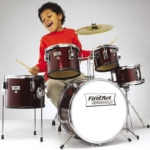Because of experiences, background, and ability, everyone learns in different ways. Practicing techniques may not work as well for one person as another. It is your job as a player to figure out what works best for you. Here are some suggestions of techniques you can try while practicing your intermediate/advanced piano music.
1. Be organized!
Schedule your practice sessions daily. If you don’t, you will keep putting it off all day until there is not time left! You need to be very clear to yourself what your objectives are for your practice session. Keep a practice journal of what you have practiced and for how long. Before playing the music, look through it and determine what you need to work most on. Do not continue practicing for longer than about 40 minutes. You will become mentally tired and the practice won’t do you much good.
Writing things down is an important step that many people miss these days. Write down things your teacher says in your lesson in your practice journal so that you have their notes right there when practicing. And more importantly, be your own teacher. Listen to yourself playing and figure out what needs to be better!
2. Always warm up!
If you properly warm up your hands, you will be able to accomplish the demands of difficult repertoire with ease and few errors. Warm ups such as scales and arpeggios help to loosen up the wrists and focus on how you are using your fingers and fingerings. Start slow and gradually speed up using them to focus on how you play.
3. Be aware of what/how you are practicing.
Make it a goal to try something new during each of your practice sessions. Practicing what you are already good at playing doesn’t do you a lot of good. The whole point of practicing is to get better at new music!
Also, you don’t always have to start at the beginning of a piece. Lots of students make the mistake of always starting at the beginning, so that the beginning of the piece sound great and the end, not so much! Target weak sections of the piece and focus on them in your practice sessions. Your practice time will become much more efficient this way!
4. Count and practice with a metronome.
Counting is essential when you are playing any instrument. While playing the piano, you are fortunate enough to be able to count out loud with yourself since there is no mouthpiece in the way! As you are learning a piece, be sure to count precisely. You should not pause or hesitate in your counting. In other words, you should play the piece the slowest speed you are able to go all the way through and work your way up to a faster tempo!
Working with a metronome can help you to work your way up with the tempo. Start slow and work your way up. This helps to strengthen your memory, strengthen your technique, and it keeps you honest about your abilities.
5. Play hands separate.
If you are having troubles playing with both hands together, try playing hands separate. You should just do this with small sections of the music. This will simplify the music for you. Sometimes the left hand is weaker and giving it this special attention will help to strengthen it.
6. Practice for perfection!
Pick out a small section of your piece and strive to play it without making a single mistake. When it is perfect, move to the next section and work on it until it is perfect too! Once you can do all of the small sections perfect, combine them to make larger sections.
You can also have different levels of perfection. At first work on the notes being perfect. Then work on adding phrasing, dynamics, pedal, etc. Soon you will be playing a masterpiece!
If you are interested in taking lessons, check out this page about Piano Lessons to find out more information.



